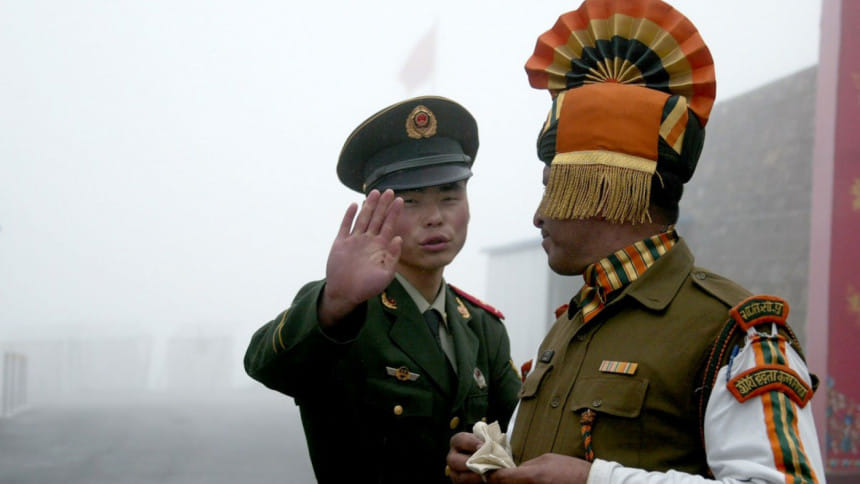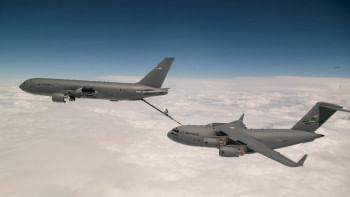Politics, geopolitics and the economics of the pandemic and human security

No pandemic has had such severe global impact, both in terms of its global reach and the related consequences, as has Covid-19. Records show that major pandemics have occurred at a hundred year interval, if we consider the last half the millennium, e.g., the cholera epidemic which originated in India and spread up to China by 1920, lasted seven years. Then there was the Spanish Flu of 1920 and now Covid-19. Some of them lasted for years. The Great Plague of Marseille 1720 which killed a total of 100,000 people. And it took decades for some countries to get back to economic normality. In some cases there were more deaths than we have witnessed so far due to coronavirus. But the other aspects of life had not been as badly affected as we see now. The Spanish Flu in its aftermath saw the emergence of the League of Nations' Health Organization, the forerunner of the World Health Organisation.
We cannot predict how many people would die by the time the world succeeds in fighting the virus effectively, but the effect, primarily on the international economy, is likely to last longer than we can imagine, particularly with so many developing countries being thrown over the edge. But, and this may sound rather cynical if not glib, what the virus has done is that it has played the role of an equaliser, treating both the affluent and advanced countries and the less developed and developing countries equally. Similar is the case also in Bangladesh where the rich and the poor have been affected equally, although the more affluent had better access to healthcare than the others. The crushing effect has rendered the same degree of helplessness to the powerful and not-so powerful countries.
The economic forecast is bleak. According to IMF estimate, 170 countries will see their GDP per capita fall by the end of the year by about 3 percent, and that to, it admits, may be an optimistic forecast. And WTO sees trade possibly declining by between 13 percent and 32 percent. Some recovery is expected in 2021. Thus, if the world economy has to recover, the less developed and poorer countries would have to be taken onboard by the richer ones. That I see as a redeeming feature in this rather disturbing situation where everyone is left guessing about the future.
The virus has exposed some glaring limitations of the state, the state of governance for example, and a fragile healthcare system, particularly in countries like ours where one is not guaranteed appropriate and timely treatment. We seemed to have overlooked the fact that right to health is a fundamental right and not a dole given out at the discretion of the state. And of course the economy, which has taken a bad hit, particularly the informal economy on which a great number of poor are dependent in countries like ours.
Interestingly, some countries with less pluralistic regimes and societies appear to have been more successful in effecting those strict control measures which helped in curbing the transmission of the disease; that is the first step if the virus has to be contained if not eliminated altogether. But be that as it may, what the crisis has also shown is that bad leadership yields to the virus, democratic or not, more so when leaders disregard science and put politics over people's health. In the two countries most heavily infected, the US and Brazil, the virus has exposed this rather pitiable aspect. And the most important aspect that the pandemic has brought to the forefront, something that we have restricted to words speeches and essays only, and bothered little to implement, is human security. What the pandemic has shown is that a country may have power to rule the seven seas yet be so pathetically lacking when it comes to providing adequate medical equipment to combat the disease.
But apart from the economics the pandemic has shaped internal politics as well as regional and global geopolitics, which will have far reaching implications for future global order.
The pandemic has affected domestic politics too, contrasting state security and fundamental rights. Ensuring one should not abridge the other. But one has witnessed the abridgment of certain fundamental rights, particularly freedom of speech. Ours is a case in point, where the draconian Digital Security Act (DSA) has been misused to curb all kinds of criticism against the government. Journalists have been put in custody, 37 of them in the last few months, and denied bail for publishing factual reports. Comments about government functionaries have been deemed as libellous and processed under the same act whose provisos are vague and open to misapplication. To quote the Sampadak Parishad, statistics show that more journalists, teachers, and intellectuals have been arrested under DSA than cyber criminals, especially in the last six months. In sum, the reactions to alleged fake news have been very intrusive and heavily disproportionate to the alleged offense. The UN High Commissioner for Human Rights has expressed alarm at the clampdown on freedom of expression in parts of the Asia-Pacific during the Covid-19 crisis, primarily because, according to the statement, the relevant laws "have been used in other contexts to deter legitimate speech, especially public debate, criticism of government policy and suppress freedom of expression." In the time of rampant corruption, it's the media that has kept the government and the people informed about how the pandemic is being handled as well as about the misuse and defalcation of government help meant for the poor.
One-upmanship and geopolitical jockeying have been geared up too. In fact, according observers, the pandemic has dealt a new hand in the game of geopolitics. It has exposed the weakness of the geopolitical realists' view of geopolitics. Today's art of statecraft involves more than a state's hard power and thus making it critical for countries, particularly like ours, to modulate actions to steer through a crisis like this pandemic.
In the realm of international politics we have witnessed the opening up of a new chapter in which we witness the "instrumentalisation" of the pandemic. Even before anyone could ascertain the allegations, we have seen blame and counter blame thrown at one another. China has already been put in the dock, the US, the UK and Australia losing no time to ask for reparations from China. The US has intensified its pressure on Iran by imposing even harsher sanctions on it. The recent border clash between China and India stems from, some contend, geopolitical compulsions. Adding to uncertainty is the US defence secretary's statement that the US is reviewing its global troop deployment to ensure it is "postured appropriately" to counter the growing Chinese military threat to countries like India, Malaysia, Indonesia and the Philippines. This is another instance of the pandemic offering an opportunity to the US to warm up farther to India on the excuse of providing economic dole to India for the post pandemic rehabilitation.
The narratives in the foregoing paragraphs, give rise to the question whether the world will see significant changes in future world order. And if so, what is it going to look like. That we shall delve into next week.
Brig Gen Shahedul Anam Khan, ndc, psc (Retd), is a former Associate Editor of The Daily Star.

 For all latest news, follow The Daily Star's Google News channel.
For all latest news, follow The Daily Star's Google News channel. 



Comments